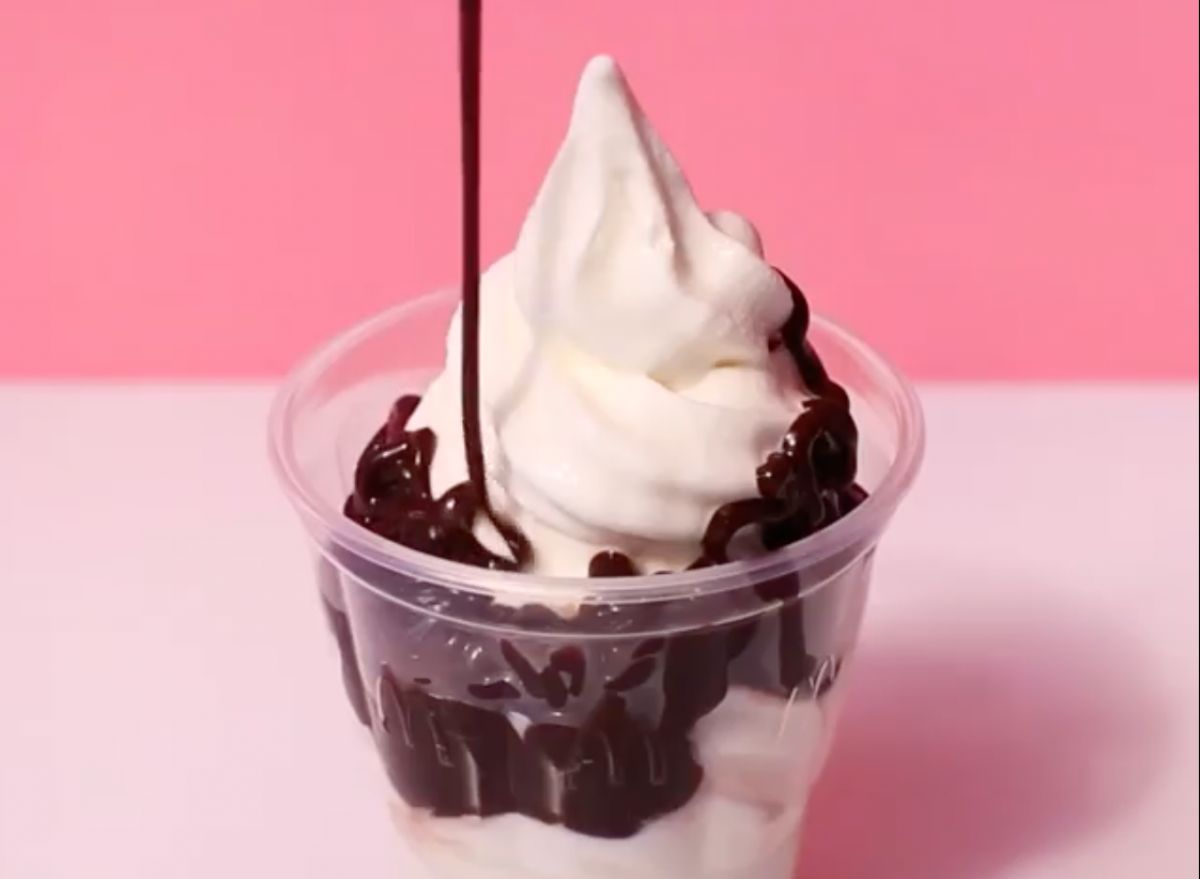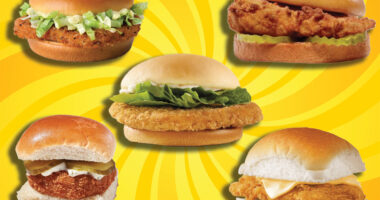Nothing completes a fast-food meal like a cold sweet treat. Most chains offer what seems like ice cream on their menu, but what most customers might not realize is that their vanilla cones or fudge sundaes don’t actually contain real ice cream at all.
So what are we really eating when we dip our fries into a Wendy’s Frosty, or spoon out the mixed bits in a Dairy Queen Blizzard? The U.S. Food and Drug Administration (FDA) has specific criteria for labeling a product as “real ice cream,” and it comes down to how much butterfat the treat contains, along with certain weight guidelines.
“Ice cream contains not less than 1.6 pounds of total solids to the gallon, and weighs not less than 4.5 pounds to the gallon,” the FDA website explains. “Ice cream contains not less than 10 percent milkfat, nor less than 10 percent nonfat milk solids, except that when it contains milkfat at 1 percent increments above the 10 percent minimum.”
Anything with less than 10% dairy milkfat or butterfat is categorized in a different way. Depending on how much air is mixed into the product during the freezing and churning process, we get what’s known as soft-serve, a lighter and smoother dessert found in fast-food restaurants like McDonald’s, Burger King, and more.
The next time you’re craving a frozen treat at the drive-thru, you can be better informed on whether what you’re ordering is real ice cream, soft-serve, or something else. Here are some of the most popular fast-food restaurants that don’t serve real ice cream.
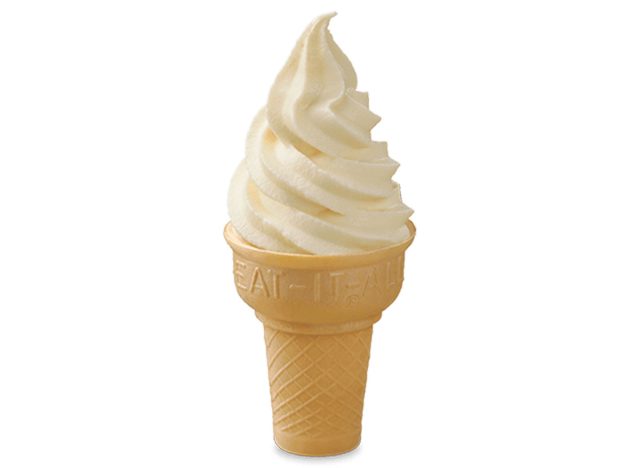

Next time you’re in line for a tasty chicken sandwich or some chicken nuggets at Chick-Fil-A, take a close look at their dessert options. You might notice that what looks like a normal vanilla ice cream cone is actually called Icedream. No, it’s not a typo, it’s the name the beloved chicken restaurant has given to this menu item to ensure customers understand what they are selling is definitely not ice cream.
Icedream remains one of the chain’s most popular menu items, but according to FDA rules, it can’t be categorized as ice cream. And with only 3% butterfat, it barely skirts the soft-serve category too, according to The Daily Meal. The main ingredients include milkfat and nonfat milk, sugar, and less than 1% of natural and artificial flavors, mono and diglycerides, guar gum, and carrageenan, an additive made from seaweed that is used as a thickener in dairy products especially.
Still not convinced? The official website describes the dessert as “a delicious, frozen dairy treat with an old-fashioned vanilla taste.” All of that sounds like a fancy way to say, “This is very different from your typical ice cream cone.”
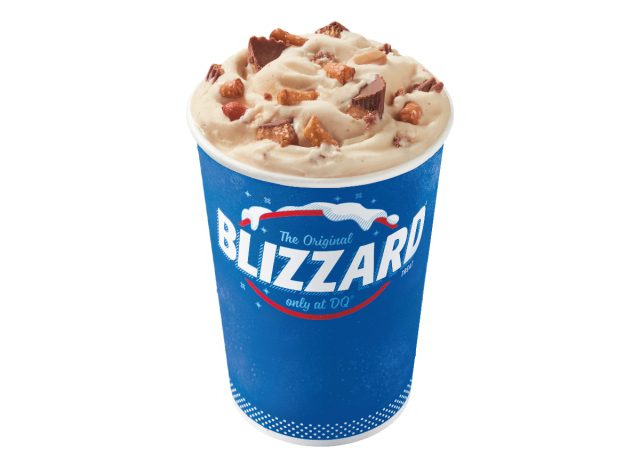

You’d think a fast-food restaurant known for its ice cream treats would use real ice cream, but Dairy Queen is very transparent about how un-ice cream its frozen desserts are. “Technically, our soft serve does not qualify to be called ice cream,” the FAQ section of the Dairy Queen website states. “While our soft serve product used to be categorized as ‘ice milk,’ the Food and Drug Administration (FDA) eliminated this category of product.”
READ RELATED: Wegmans Is Closing One of Its Most Unique Stores
You have to hand it to Dairy Queen, however, as their company had a huge part in bringing soft-serve to life. It’s all thanks to a father and son team who kept experimenting with soft frozen dairy products. Working with a partner who owned an ice cream shop, the team began selling what is now known as soft serve on August 4, 1938, eventually going on to open the first Dairy Queen in 1940.
The company reiterates that its classic recipe “has not changed” and based on FDA guidelines, they are proud to offer a soft serve made with 5% butterfat. Good to know while enjoying any of their creative Blizzard choices.
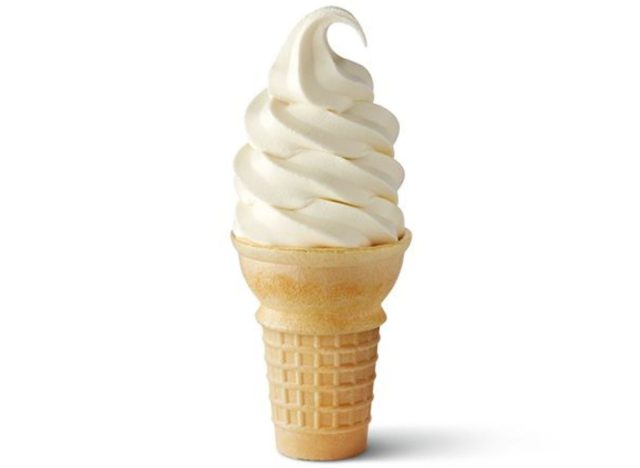

When the machine isn’t broken, a McDonald’s Vanilla Cone can be the happiest ending to a McMeal combo. Notice how “ice cream” isn’t part of the name, or the product’s description: “Our Vanilla Cone features creamy vanilla soft serve in a crispy cone.” That’s because the Vanilla Cone at McDonald’s isn’t made with real ice cream, it’s just plain ol’ soft serve.
McDonald’s doesn’t dive too deep in terms of describing the Vanilla Cone’s ingredients, it lists milk, sugar, cream, and corn syrup as the main ones. The company has been trying to reduce the number of artificial ingredients in its frozen desserts, according to CNBC.
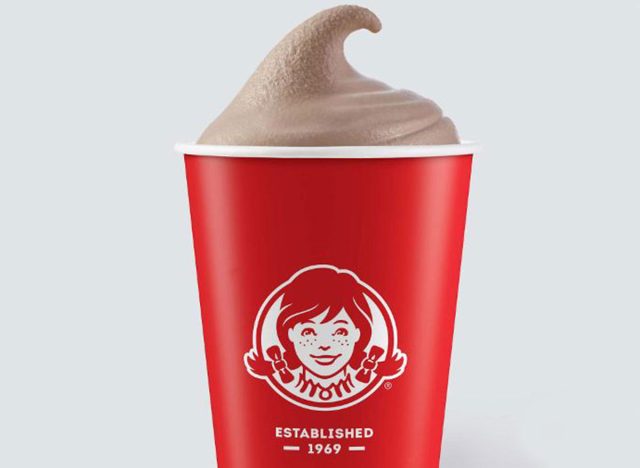

The Frosty falls somewhere between a milkshake and ice cream based on its super soft texture (that’s why you get both a spoon and a straw when you order one). So it feels right that this is often referred to as the brand’s “signature dessert” more than anything else.
“There is nothing quite like the taste and texture of the Frosty,” Ian Rowden, Wendy’s former executive vice president, stated during the launch of the Vanilla Frosty in 2006. The treat itself is served to customers at a distinct temperature range—between 19 and 21 degrees Fahrenheit—whereas regular ice cream is best served around 10 degrees Fahrenheit, according to Smithsonian Magazine.
A Frosty is made up of similar ingredients to FDA-approved ice cream (milk, sugar, corn syrup, cream, whey, nonfat dry milk, etc.) but the amount of milkfat is likely too small to give it the official title. That hasn’t stopped customers from enjoying it; the Frosty was part of the original menu when Wendy’s opened in 1969, and luckily won’t be going away anytime soon.
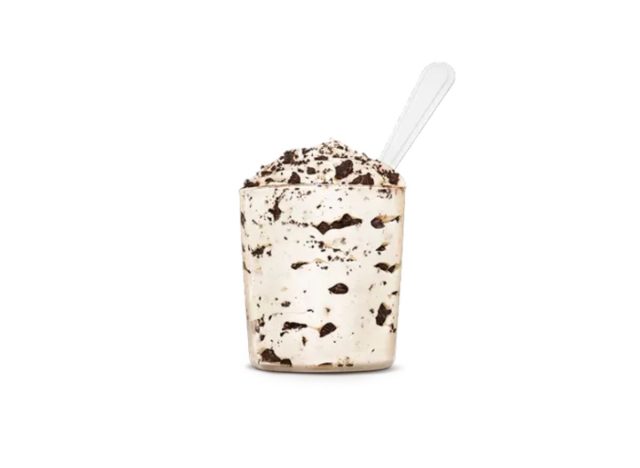

Dessert may not be the main reason customers dine at Burger King, but the chain certainly provides a variety of treats to choose from. Nation’s Restaurant News reported that in 2011, the company created a whole menu based on soft-serve ice cream. It offered premium sundaes with toppings like brownies and Oreos, soft serve cones and cups, and shakes, most of which are still available today.
Burger King only offers one flavor of soft serve—vanilla—and while it’s hard to track down the percentage of milkfat and butterfat the dessert contains, it’s pretty clear on the company’s website that they avoid using the words “ice cream” altogether. It’s described as “Cool, creamy, and velvety soft serve” and we’ll just accept it at that.
They don’t even call their shakes “milkshakes,” because a milkshake usually involves real ice cream. But don’t let that stop you from ordering one, as long as you like a limited selection of flavors: chocolate, vanilla, or Oreo.

